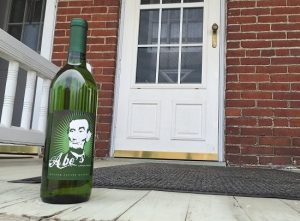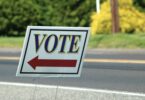By Kathy Hoekstra | From Watchdog.org
When Antony Davies’ dad sent him a case of wine from California, it was no easy feat to pick it up.
“In Pennsylvania, wine must [by law] be shipped to a state store,” explains Davies, an associate economics professor at Duquesne University in Pittsburgh. “That means making a special trip at the time that the state store is open, standing in line, finding out I need to deal with a particular person, waiting for that person, signing papers, hauling the case of wine out to the car and going home. Total transaction time, about 30 minutes.”
On the other hand, virtually anything else his dad sends ends up at Davies’ front door. “Total time to complete the transaction, 30-to-60 second transaction,” Davies added, “depending on whether the dog gets out when I open the door.”
Unfortunately for Davies, the Keystone State’s highly touted alcohol reform law doesn’t entirely fix this problem. It’s true Act 39 allows direct wine shipments to homes, but only if Davies’ dad buys the wine from a winery, and only if the winery buys a direct wine shipper license.
Amid this and the murkiness of many other so-called regulatory “fixes,” the House Liquor Control Committee has scheduled a public hearing at noon Wednesday to discuss the 5-month-old law.
Lauded as “truly historic” by Gov. Tom Wolf, Act 39 also allows limited number of grocery and convenience stores to sell up to four bottles of wine to customers, and government-run liquor stores can stay open longer.
But critics say Act 39 is window dressing on a much bigger problem for consumers and taxpayers. According to Bob Dick, senior policy analyst with the free market Commonwealth Foundation, regulations’ new conveniences do nothing to break state government’s near monopoly on the sale of wine and liquor at its 600 stores.
“State officials still have too much power to decide what is and is not sold in government-run retail stores around the state,” Dick told Watchdog.org. “And you still can’t buy wine, beer, liquor or food all in one location.”
What’s worse, Dick points out, is a lesser-discussed provision that gives the state “flexible” pricing power. Rather than the old method of pricing alcohol based on a uniform markup formula, the Pennsylvania Liquor Control Board (PLCB) can negotiate costs with suppliers. Board chair Tim Holden stated in a recent op-ed this pricing scheme allows the agency to lower prices while increasing revenue for schools, law enforcement and other government services.
“Now, by engaging suppliers in collaborative, cooperative discussions about how to optimize revenue for the commonwealth, we can both generate additional revenue and achieve more competitive retail prices through cost reductions, rather than broad price increases,” Holden wrote. “We simply want more competitive costs from our suppliers – comparable to what other states and retailers enjoy.”
Lew Bryson doesn’t buy it. The Pennsylvania native and longtime drinks writer says agency claims that it can lower prices while also raising a projected $65 million more per year defies logic.
“If ‘flexible’ pricing is going to increase the PLCB’s fake ‘profits’ by $65 million, how can they do that without broadly increasing retail prices?” Bryson asked. “This is as bad as ‘Wolfonomics’, where the governor told us that privatization and ensuing competition would result in HIGHER prices, which flies in the face of basic market economics.”
When contacted by Watchdog.org, PLCB Communications Director Elizabeth Brassell replied with many of the op-ed’s same talking points, but added the lower costs can be achieved due to economies of scale because the PLCB is “one of the largest purchasers of alcohol in the world.”
Brassell says she cannot speak to the specific $65 million figure because it did not come from the PLCB. The number came from a House fiscal analysis in June. A House Appropriations Committee report last month pegged that number at a slightly more conservative $50 million in 2016/17.
“I’m not sure what/when fiscal analyses came from different folks or what may have changed. Sorry, can’t speak for data or assumptions that aren’t ours,” Brassell said. “We have yet to be able to meaningfully estimate how much additional revenue might come from flexible pricing, but it’s certainly not the estimates attributed to Act 39 as a whole.”
Regardless of the amount, Bryson says balancing the state budget with unfair and unreliable revenue sources is not fiscally responsible. “Pennsylvania must control its spending if it wants to truly balance its budget and protect working people from tax increases,” he said.
So what’s really going on?
Bryson believes the potential money grab through flexible pricing is to placate the state store clerks’ union, which consistently pushes back against any move toward privatizing the state’s alcohol regime, and an effort to maintain an operation that last year raked in a record $2.43 billion in sales.
But he says Wednesday’s public hearing should be used to confirm his theory.
“I want the legislators to hold Holden’s feet to the fire about flexible pricing,” he said. “This is a state agency. We the shareholders deserve to see the results and the truth on whether flexible pricing means higher prices. Don’t allow Holden to get this bogged down in trivial details: go for the throat, get the information that matters.”
And after that, Bryson urges the state to get out of the booze business altogether.
“Not nipping around the edges, not a hybrid plan that leaves the state as the monopoly wholesaler, a rip-the-band-aid-off plan to get it done,” he urged. “If privatization means less booze-based revenue for the state, well, fine, let them find it in someone else’s pockets for a change. Moderate drinkers have paid more than our fair share for long enough.









